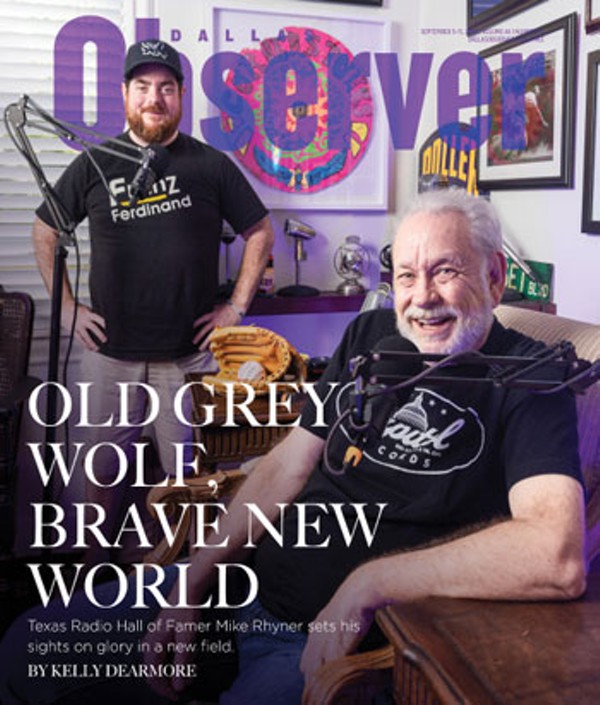I just read that President Obama, who has the worst record in White House history for criminalizing and prosecuting investigative reporting, wants Facebook founder Mark Zuckerberg, whose early success was based on knifing his partners in the back, to become the czar and supreme regulator of “Fake News.”
What a truly horrible and utterly frightening idea.
Better idea: How about relying on the Constitution to tell us what we can read? Why don’t we remain faithful to the document that has seen us this far, instead of turning our reading liberties over to Mack the Knife Zuckerberg and Lock 'Em Up Obama?
Fake news is a term of art to describe stuff on the internet that is wildly and deliberately untrue, off the charts crazy, and yet somehow people believe it anyway. Obama’s idea is that Zuckerberg’s company, Facebook, is the channel by which a lot of fake news gets dispersed, therefore he should be the one to find a way to make fake news go away.
How? Oh, well, with an algorithm, of course. You know about algorithms, I assume. Didn’t you study them once? I did. Algorithms fall into a portion of my general education that I categorize under “real hard math.”
So somehow Zuckerberg is supposed to invent an algorithm that will identify fake news and blow it up or somehow render it redacted from reality. You click on the page; you hear this little air raid siren sound; a mushroom cloud appears on your screen; and a little inset video of Mark Zuckerberg appears in the corner wagging a finger at you and saying in a tinny little voice, “Fakey-fakey, it’s no jakey.”
OK, let me offer a couple of quick thoughts or observations on fake news. First of all, I do not believe Zuckerberg could invent an algorithm that would not wind up identifying the entire Bible as fake news. I mean, c’mon — blind man sees, dead man walks, fish into loaves. How are you going to get the real hard math thing to distinguish between fake news and cherished belief?
Secondly, fake news has always been an important part of the political process, since long before anyone heard the word internet, probably since the beginning of time, and I might even reference the Bible again in that regard, not to be offensive.
In politics, fake news used to be called the whisper campaign. Whisper campaigns have always been especially effective in districts where people have good reason not to trust the establishment media.
I remember sitting over many whiskeys with a rowdy group in the Oklahoma City press club listening to an Oklahoma state senator from a part of southeastern Oklahoma called “Little Dixie” brag about a particular whisper campaign he had used to destroy an otherwise invulnerable candidate. The candidate whom he had targeted was the owner of a funeral home, known far and wide for generosity, a keen interest in school sports and eminent churchmanship.
His sin, in the senator’s eye, was thinking himself too pure and too good to knuckle under to the local political machine, in which the senator was a loyal lieutenant. That insult to the machine could not be allowed to stand.
A disability that the machine suffered, however, was that the machine controlled all the local newspapers in Little Dixie. Everybody knew it. So nobody believed what any of the newspapers said. The machine, therefore, had to find some way to reach around local skepticism.
The senator explained to us that when the target of a whisper campaign has a spotless reputation and is held in the highest esteem, small whispers won’t work. Even accusing the target of marital infidelity won’t wash, because people already know what a good person the target is and won’t believe it.
The senator said the trick in a whisper campaign like that is what he called “the long ball.” In this case, the senator and his political posse started a rumor that the man in question was part of an international ring of necrophiliacs who held orgies in the basement of the funeral home.
He claimed to us that night that his whisper campaign blew the guy up like an A-bomb and that the man not only lost his election but had to leave town. I read the same story later by Mark Singer in The New Yorker, in great detail and with many colorful quotes. I would show you that article, but The New Yorker archives won’t let me link to it.
The point is that whisper campaigns — fake news, if you will — are like scary campfire stories. Get a good campfire going, put some kids around it, somebody will tell a scary story. Get an election going in an atmosphere where people don’t trust the major media, somebody will start a whisper campaign.
Should they? I’m not sure. I guess not. But they do. They always have, only now the whispering is done online, it’s more like shouting except for the anonymity, and it’s called fake news.
The hard question has less to do with whether people should engage in fake news than in what to do about it. Zuckerberg's inventing some redaction algorithm to shield the public eye from falsehood is a close cousin to draconian libel laws and even government boards of censorship. You can’t give Zuckerberg the authority to suppress falsehood without conveying to him also the authority to decree truth.
And anyway, please. Let me share some modest experiences I have had myself as a local news person all my life, especially here in Dallas. In a town like this, where power is very narrowly held and media very tightly controlled, the establishment reacts in one of two ways when some upstart starts telling stories that are not supposed to be told.
The first is to see if the upstart has any outstanding warrants. The second is to threaten the upstart’s newspaper with an advertising boycott. Generally speaking, powerful establishments do not stoop to the indignity of debate. They go straight to the jugular vein.
When the upstart has no outstanding vulnerabilities of his own and his newspaper has a revenue stream that the establishment cannot effectively threaten, then the establishment may go the costly route of litigation. But because the founders of our nation saw that one coming — Thomas Jefferson, in particular, knew that libel law is a tool of censorship — American libel laws tilt toward the upstart.
So what about having a local fake news algorithm? Who would be in charge? Who would be the czar, the official municipal algorithmic? Maybe a committee of the Dallas City Council? A local judge? A think tank full of local but brilliant minds?
Let me guarantee you, whoever it was, the algorithmic would start getting invited to Jackson Hole on Christmas ski trips. The algorithmic’s kid would be singled out suddenly as a world-class virtuoso on the accordion and offered a fellowship in Hawaiian accordion music and surfing on Maui. Whoever held that much power would be gotten to. Quickly.
And then what? How would the algorithmic’s definition of truth begin to evolve? Truth, clearly, would be whatever is written by the good and professional journalists at the official newspaper, the people who know how to behave themselves.
Fake news, on the other hand, would be whatever is written by people who are pains in the ass. Those jerks. Those professional pot-stirrers and trouble-makers. They’re the fake news bastards who need to get blown up like an A-bomb.
Don’t believe me? Well, ask yourself this. Why in 200 years of our own national history and more like 1,000 years of English history has our entire legal tradition tended away from official government or crown-sanctioned arbiters of truth and toward letting people figure things out for themselves?
It’s not that people should lie. It’s not that people should believe lies. People should not lie or believe lies. But they do. But whom do you propose to put in charge of stopping them?
Jefferson would have said that the only antidote to fake news must be better news, more truthful, better told, more effective, something that rings truer than the story about the international ring of necrophiliacs. You can’t fight lies with suppression, because suppression is a lie, and redaction is suppression.
And here’s the joke. Let’s keep it here in Dallas. Let’s say I write a lie, a story saying that so-and-so, whom everybody considers to be so high and mighty, is really a member of an international ring of necrophiliacs. I put it on Facebook. I say that every Wednesday night they go down there in the basement of the funeral home, and, oh my God, do you know what those people do down there? They have all this accordion music, and they get naked, and then they …
BLAMMO! The algorithm blows me up! There’s the inset of our municipal algorithmic in the corner of the screen, waggling his finger and telling people, “Fakey-fakey.”
You know what that does, right? You know what it accomplishes? It just means I have to go for a longer ball. Now I have to write a story saying the guy is not even from this planet, that he unzips his skin and he’s a lizard inside. I have to make a video of myself with a pair of boxer shorts pulled down over my head and say it all out loud on Snapchat.
Oh, wow. Wait a minute. What a thought. I actually think that might work. OK, if you ever see anything like that, I had nothing to do with it.

Audio By Carbonatix
[
{
"name": "Air - MediumRectangle - Inline Content - Mobile Display Size",
"component": "18855504",
"insertPoint": "2",
"requiredCountToDisplay": "2",
"watchElement": ".fdn-content-body",
"astAdList": [
{
"adType": "rectangle",
"displayTargets": "mobile"
}
]
},{
"name": "Editor Picks",
"component": "17105533",
"insertPoint": "4",
"requiredCountToDisplay": "1",
"watchElement": ".fdn-content-body",
"astAdList": [
{
"adType": "rectangle",
"displayTargets": "desktop|tablet"
},{
"adType": "rectangle",
"displayTargets": "desktop|tablet|mobile"
}
]
},{
"name": "Inline Links",
"component": "18349797",
"insertPoint": "8th",
"startingPoint": 8,
"requiredCountToDisplay": "7",
"maxInsertions": 25
},{
"name": "Air - MediumRectangle - Combo - Inline Content",
"component": "17105532",
"insertPoint": "8th",
"startingPoint": 8,
"requiredCountToDisplay": "7",
"maxInsertions": 25,
"watchElement": ".fdn-content-body",
"astAdList": [
{
"adType": "rectangle",
"displayTargets": "desktop|tablet"
},{
"adType": "rectangle",
"displayTargets": "desktop|tablet|mobile"
}
]
},{
"name": "Inline Links",
"component": "18349797",
"insertPoint": "8th",
"startingPoint": 12,
"requiredCountToDisplay": "11",
"maxInsertions": 25
},{
"name": "Air - Leaderboard Tower - Combo - Inline Content",
"component": "17105535",
"insertPoint": "8th",
"startingPoint": 12,
"requiredCountToDisplay": "11",
"maxInsertions": 25,
"watchElement": ".fdn-content-body",
"astAdList": [
{
"adType": "leaderboardInlineContent",
"displayTargets": "desktop|tablet"
},{
"adType": "tower",
"displayTargets": "mobile"
}
]
}
]











